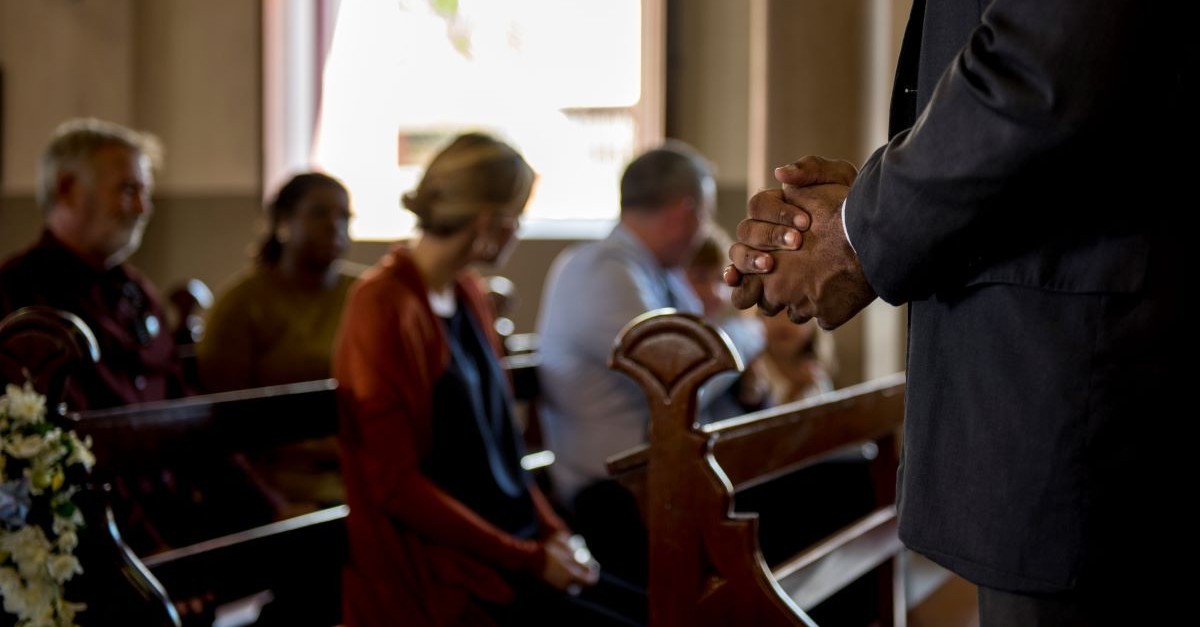
The Society of Friends, commonly known as Quakers, emerged in mid-17th century England. Founded by George Fox, a dissenter dissatisfied with the Church of England, the movement emphasized personal spiritual experience. Fox’s revelatory experience in 1647 marked the beginning of the Quaker movement.
Quakers faced persecution due to their radical beliefs and refusal to participate in state-sanctioned religious practices. Despite this, their numbers grew, with early adherents spreading the message throughout Britain and the American colonies.
In 1681, William Penn, a prominent Quaker, founded Pennsylvania as a haven for religious freedom, attracting many Quakers and establishing the region as a center for their community. The Quakers’ influence extended into social reform, notably in the abolitionist movement. They played a crucial role in advocating for the end of slavery in the United States.
Western society has numerous Christian denominations, and Friends Churches continue to be extremely distinct in several interesting and important ways.
Here are 7 things you need to know about Society of Friends churches.
Photo Credit: ©Unsplash/Robin Spielmann

1. Belief in Inner Light
The Society of Friends strongly emphasizes the belief in the Inner Light. Central to their faith and practices, this concept signifies the presence of God within every individual. Quakers believe this Inner Light, or divine spark, guides and inspires each person, enabling them to experience and understand God’s will directly.
The Inner Light belief fosters a personal and direct relationship with God, eliminating the need for intermediaries such as clergy. Quakers hold that every person can access this divine guidance through silent contemplation and reflection. Since they believe everyone possesses this divine spark, Quakers advocate for all individuals' inherent worth and dignity. This conviction drives their active involvement in social and religious traditions. John 1:9 states,
“The true light that gives light to everyone was coming into the world.”
This verse references Jesus coming to earth to give light to every person, guiding them towards truth and righteousness. Every person has been created in God's image; therefore, it does matter how people are treated. When people repent and believe in the Father, our spirits are reborn, and God places the Holy Spirit within believers for guidance and truth. The Quaker Inner Light doctrine seeks to dignify and highlight these ideas.
Photo Credit: © Unsplash/Riccardo Mion

2. Worship Practices
The distinct worship practices of the Society of Friends, or Quakers, are deeply rooted in their commitment to simplicity and direct experience of God. Quaker worship typically involves unprogrammed meetings, where members gather in silence without a prearranged order of service or clergy leadership. This practice reflects their belief in the Inner Light, the divine presence within each person that guides and inspires.
During these silent meetings, participants sit together in a communal space, waiting in quiet contemplation. They seek to listen to God’s voice within them, allowing the Spirit to move and inspire. If someone feels led by the Inner Light to speak, they may share a message, prayer, or reflection with the group. This spontaneous sharing is considered a form of ministry and is respected and valued by all present.
This practice of silent worship fosters a deep sense of community and equality, as there is no hierarchy or formal structure dictating the flow of the meeting. Each participant has an equal opportunity to contribute, emphasizing the Quaker belief in the priesthood of all believers. They view God as leading and in charge of the meeting. Matthew 18:20 states,
“For where two or three gather in my name, there am I with them.”
This verse underscores the Quaker's conviction that God’s presence is accessible to all, regardless of the setting or structure of the worship service.
Photo Credit: ©GettyImages/Rawpixel

3. Simplicity and Pacifism
For the Quakers, simplicity and pacifism are central to their faith and way of life. These values reflect their commitment to living in harmony with their beliefs and the teachings of Jesus.
Simplicity in Quaker practice means focusing on what is truly important and eliminating unnecessary distractions. Quakers strive to live materially and spiritually uncluttered lives so they can better hear and respond to the Inner Light within them. This simplicity extends to their worship, often marked by silent, contemplative meetings without elaborate rituals or hierarchies. Their approach to life emphasizes honesty, integrity, and the use of resources in a way that benefits others and the environment.
Pacifism is another cornerstone of Quaker belief. Quakers are committed to nonviolence and believe in resolving conflicts peacefully. This commitment to peace is rooted in their understanding of Jesus' teachings, particularly the Sermon on the Mount, where Jesus advocates for turning the other cheek and loving one’s enemies. Quakers actively work for peace and justice, often engaging in social and political activism to promote these causes. In Matthew 5:9, Jesus says,
“Blessed are the peacemakers, for they will be called children of God.”
This verse encapsulates the Quaker commitment to peace and their belief that true followers of Christ must strive to be peacemakers in all aspects of their lives.
Photo Credit: ©Getty Images/jacoblund

4. Decision-Making Process
The decision-making process in the Society of Friends reflects their values of equality, unity, and the Inner Light. Quakers use a consensus-based approach known as the “sense of the meeting” to make decisions. This method seeks to discern God’s will collectively rather than relying on majority rule or hierarchical authority.
In a Quaker business meeting, all members gather in a spirit of worshipful listening, open to the guidance of the Holy Spirit. The process begins with silence, allowing people to center themselves and seek divine guidance. Members then share their insights and concerns, speaking one at a time and with a sense of responsibility to the group. There is no voting; instead, the group aims to reach unity. Disagreements are addressed with patience and respect, often resulting in further reflection and discussion until a shared sense of direction emerges.
This consensus-building approach ensures that every voice is heard and valued, reflecting the Quaker belief in the equality of all individuals. It also fosters a deep sense of community and mutual trust as members commit to working together harmoniously and respectfully. With a consensus, every member also feels ownership in the decision. In James 1:5, we read,
“If any of you lacks wisdom, you should ask God, who gives generously to all without finding fault, and it will be given to you.”
This verse emphasizes the importance of seeking divine wisdom collectively, which lies at the heart of the Quaker decision-making process.
Photo Credit: ©Getty Images/Lolo Stock

5. Social Justice and Activism
The Society of Friends holds that every person has inherent worth and dignity, as each individual carries the Inner Light of God. This belief drives their active involvement in promoting social justice, advocating for the marginalized, and striving for a more equitable society.
Quakers have historically been at the forefront of numerous social justice movements. They were among the early advocates for the abolition of slavery, women’s suffrage, and civil rights. Their commitment to equality extends to all areas of social justice, including racial equality, gender equality, and economic justice. Quakers actively work to address issues such as poverty, systemic racism, and injustice, often partnering with other organizations and communities to effect change.
Quaker activism is characterized by a peaceful approach to advocacy. They practice nonviolent resistance and civil disobedience, inspired by their pacifist principles. This approach aligns with their broader commitment to peace and reconciliation, seeking to bring about social change through love, understanding, and cooperation rather than conflict and violence.
A Bible reference that underscores the Quaker's commitment to social justice and equality is Galatians 3:28, which states, “There is neither Jew nor Gentile, neither slave nor free, nor is there male and female, for you, are all one in Christ Jesus.” This verse highlights the fundamental equality of all people, especially in Christ, a core tenet of Quaker belief and activism.
Photo Credit: ©Unsplash/Radu Florin

6. Intellectual and Educational Pursuit
Quakers believe cultivating the mind is essential for personal growth and spiritual development. This commitment to education is deeply rooted in their belief in the Inner Light that guides individuals to seek truth and understanding.
Quakers have a long history of establishing schools and institutions of higher learning. They founded some of the earliest coeducational schools in America, promoting equal educational opportunities for both boys and girls. Notable Quaker institutions, such as Haverford College, Swarthmore College, and Earlham College, continue to uphold the tradition of rigorous academic inquiry coupled with Quaker values of integrity, equality, and social responsibility.
For Quakers, education extends beyond academic achievement. It involves the holistic development of individuals, encouraging students to think critically, act ethically, and contribute positively to society. Quaker schools often incorporate values-based education, fostering environments where students are encouraged to explore their beliefs beyond academics. They drive their intellectual pursuits to practical and real-life applications. A belief without application has no meaning, making their approach more holistic. Proverbs 4:7 instructs believers,
“The beginning of wisdom is this: Get wisdom. Though it cost all you have, get understanding.”
This verse underscores the importance of seeking wisdom and understanding, which are core principles in Quaker educational philosophy.
Photo Credit: ©Unsplash/jdsimcoe

7. Global Presence and Diversity
Originating in England in the mid-17th century, Quakerism has spread worldwide, establishing vibrant communities across continents, including North America, Europe, Africa, Asia, and Latin America. This global expansion reflects the universal appeal of Quaker principles such as simplicity, peace, integrity, community, equality, and stewardship.
Each Quaker community adapts to its local culture while maintaining core Quaker beliefs and practices. This cultural diversity enriches the Society of Friends, as different communities bring unique perspectives and traditions to their worship and social activism. Despite geographical and cultural differences, Quakers are united by their commitment to the Inner Light—the belief that there is something of God in everyone.
Quaker meetings for worship can vary significantly around the world. Some follow the unprogrammed tradition, where worshippers gather in silent meditation, speaking only when the Spirit moves. Others follow a programmed style, with hymns, readings, and sermons. This diversity in worship practices illustrates the flexibility and inclusiveness of Quakerism, accommodating various cultural expressions of faith. With their involvement in social justice issues, they also work along the political spectrum. A section of Quakers would be considered more extreme liberal and progressive, aligning with the worldly idea of gender theory.
This worldwide network of Friends fosters a rich exchange of ideas and practices, strengthening the collective mission of promoting peace, justice, and spiritual growth across cultures.
Photo Credit: Juliana Kozoski/Unsplash

Originally published Wednesday, 10 July 2024.
